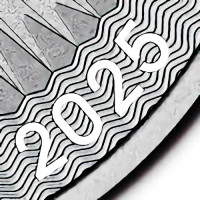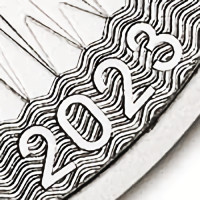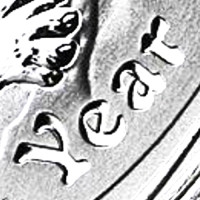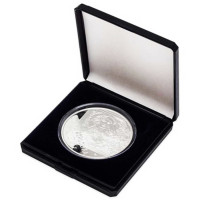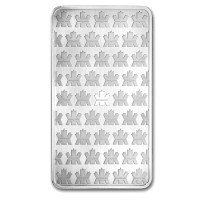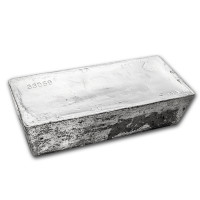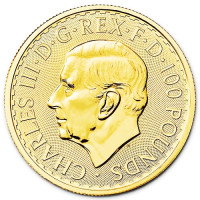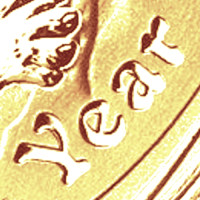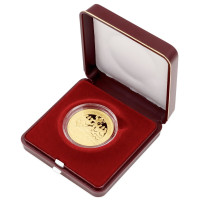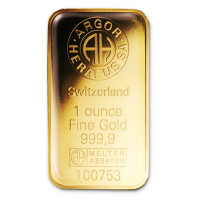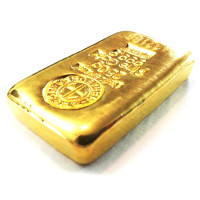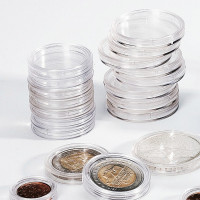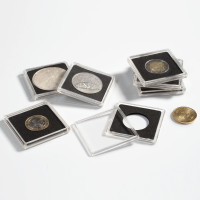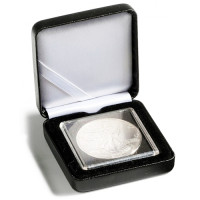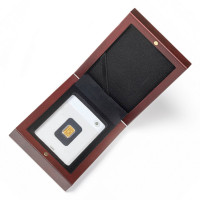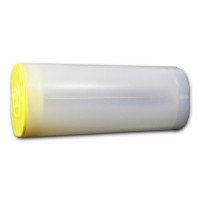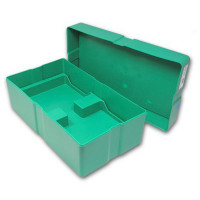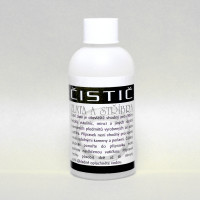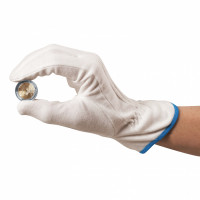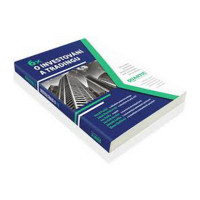
Kapitola 4 Ako nenaletieť pri nákupe
Aké sú riziká pri nákupe investičného striebra alebo investičného zlata? Na čo si treba dať pozor a čomu sa radšej vyhnúť? Ako kúpiť pravé strieborné mince a zlaté zliatky? Ako vyzerajú falzifikáty zlata a striebra? Odpovede prináša tento článok.
Drahé kovy lákali od nepamäti nepoctivcov, ktorí hľadali spôsoby, ako sa obohatiť na cudzí účet. Už v starovekých sumerských a egyptských súdnych záznamoch sa objavujú správy o klamania na váhe a rýdzosti. Rimania sa potýkali s falošnými mincami, stredoveké právo tvrdo trestalo zľahčovanie mincí okrajováním. Do kovu boli primiešavané základné kovy, najčastejšie meď. Tieto nešváry sa udržali bohužiaľ dodnes.
Je prekvapujúce, ako hlúpe chyby dokážu aj chytrí ľudia robiť, ak ide o investície. Moderná doba priniesla nové metódy, ktorými nespravodlivci lákajú od dôverčivých investorov peniaze. Na čo si teda dať pozor?
Neznámy predajca
Predajca nie je špecializovaným obchodníkom so striebrom, nemá vybudovaný preverený systéme dodávateľov. Obchoduje prostredníctvom internetových aukcií, nie je zapísaný v obchodnom registri. Veľmi často má preto, slušne povedané, "krátku životnosť" .... Potom nezostane, než sa svojich práv domáhať súdnou cestou, čo často nesie väčšie náklady, než boli pôvodné zamýšľaná investícia. Často sa potom zistí, že pohľadávku nie je z čoho uspokojiť.
Predajca so sídlom (alebo materskou firmou) v zahraničí.
Platí to, čo bolo uvedené vyššie, lenže súdny spor v zahraničí bude ešte zdĺhavejšie a nákladnejšie.
Výhodné ponuky
Výhodná ponuka býva často obmedzená na určitý veľmi malý počet kusov. Predajca tak zákazníka naláka a očakáva, že ďalej bude zákazník nakupovať z často predražené "bežné" ponuky. Druhou možnosťou je, že zákazník kúpi tovar kradnuté, nepreclené či z podobných nelegálnych zdrojov.
Veľmi nízka cena v internetovej aukcii.
Akákoľvek internetová aukcia znamená riziko, pretože predávajúcim môže byť ktokoľvek. Kupujúci po obdržaní zásielky často zistí, že dostal nekvalitný tovar, poškodené a pod. Pri investičných mincí vzniká riziko, že kupujúci dostane falzifikát.
Čo teda robiť?
Tu sú uvedené praxou preverené rady, ktoré ochráni Vašu investíciu:
- Je potrebné, aby Váš dodávateľ bol riadne registrovaný v obchodnom registri a tiež ako platca DPH.
- Váš nákup investičného kovu by mal byť realizovaný výhradne u špecializovanej firmy, ktorá má priameho dodávateľa produktov z mincovne a z burzy. Tu máte záruku, že nedostanete poškodený tovar alebo dokonca falzifikáty s nižšou rýdzosťou.
- Je vhodné nakupovať u firmy, ktorá má schopné dealingové oddelenie. Vhodným "testom" kvality firmy je napríklad otázka, či je firma schopná zabezpečiť aj LGD tehly (London Good Delivery bars) a hlavne či je vám firma schopná ponúknuť aktuálnu cenu fixovanú až v momente nákupu nákupu na burze alebo u veľkododávateľa. Ak tomu tak nie je, potom firma nemá solídne dealingové oddelenia a zrejme ani funkčné väzbu na burzu či veľkoobchodných dodávateľov.
- Zásadne je potrebné vyhnúť sa "extrémne výhodným ponukám", pretože nikto nepredáva tovar vedome so stratou.
- Veľkým oblúkom je potrebné vyhýbať sa anonymným internetovým aukciám, kedy nemáte možnosť preveriť predajcu. To isté samozrejme platí aj o pochybných pokútnych predajoch na ulici.
Ako sa falšuje striebro?
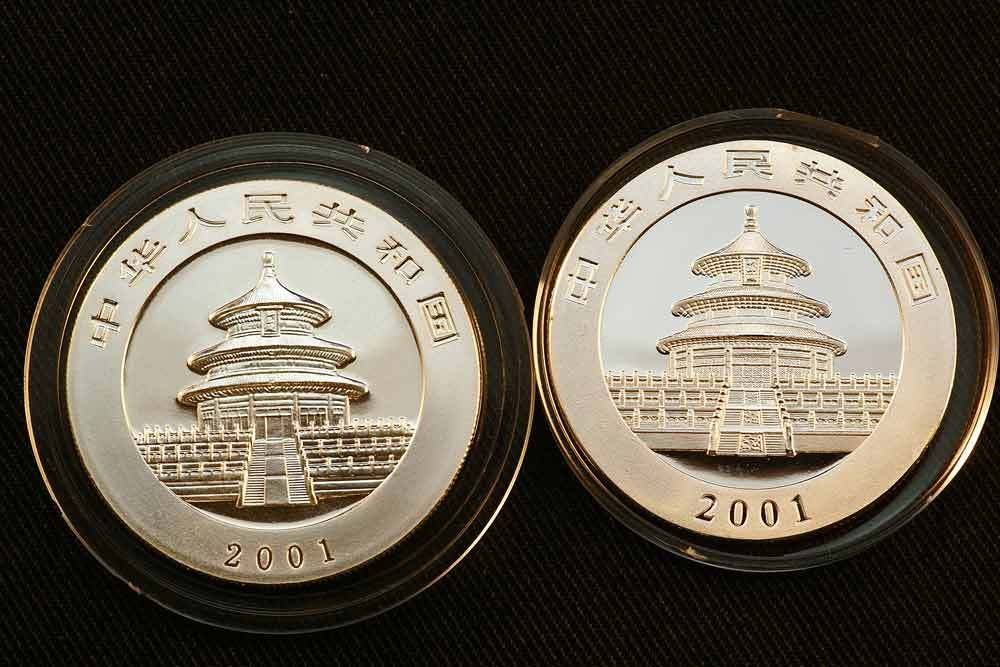 Mince sa väčšinou falšujú celé. Niektoré falzifikáty sú natoľko vydarené, že ich dokáže rozoznať iba skúsený odborník. Strieborné tehly sa falšujú najčastejšie navŕtaním a vyplnením dutiny olovom. Laik takmer nemá šancu odvŕtanú tehlu odhaliť. Falzifikáty odhalí ultrazvukový skener alebo skúška konduktivity. K týmto metódam ale nemá bežný človek spravidla prístup.
Mince sa väčšinou falšujú celé. Niektoré falzifikáty sú natoľko vydarené, že ich dokáže rozoznať iba skúsený odborník. Strieborné tehly sa falšujú najčastejšie navŕtaním a vyplnením dutiny olovom. Laik takmer nemá šancu odvŕtanú tehlu odhaliť. Falzifikáty odhalí ultrazvukový skener alebo skúška konduktivity. K týmto metódam ale nemá bežný človek spravidla prístup.
 Nie je teda "bezpečnejšie" zlato? Pozor, je to práve naopak! Pri falšovanie zlatých zliatkov, tehál aj mincí sa používajú wolframová jadra. Takto "upravené" zlato má však rovnakú hmotnosť i objem ako originálny kus, a je teda na prvý pohľad neodhaliteľné. Riziko kúpa falzifikátu u zlata je o to vyššia, že falšovanie sa vypláca práve kvôli mnohonásobne vyššej cene zlata. Falšovateľ tak za rovnakú námahu získa oveľa viac peňazí, ak sa zameria práve na zlato.
Nie je teda "bezpečnejšie" zlato? Pozor, je to práve naopak! Pri falšovanie zlatých zliatkov, tehál aj mincí sa používajú wolframová jadra. Takto "upravené" zlato má však rovnakú hmotnosť i objem ako originálny kus, a je teda na prvý pohľad neodhaliteľné. Riziko kúpa falzifikátu u zlata je o to vyššia, že falšovanie sa vypláca práve kvôli mnohonásobne vyššej cene zlata. Falšovateľ tak za rovnakú námahu získa oveľa viac peňazí, ak sa zameria práve na zlato.
 Hlavný rozdiel v tomto zmysle je ale medzi veľkými tehlami. Kým falšované zlaté tehly sa objavujú a to dokonca aj v trezoroch niektorých centrálnych bánk (naposledy v Etiópii), veľké (1000 oz) falošné strieborné tehly sa prakticky nikdy neobjavili. Hlavným dôvodom je, že 1000 uncový strieborné tehly sa používajú v priemysle a tam by sa na akúkoľvek neprávosť okamžite prišlo. Ak teda investor kupuje LGD tehly (London Good delivery) a odoberá ich od obchodníka, ktorý je odoberá priamo z COMEX, LBMA alebo ich kupuje od veľkých distribútorov v USA (tí dokonca nakupujú priamo od priemyselných rafinérie), môže si byť takmer úplne istý, že striebro je úplne čisté.
Hlavný rozdiel v tomto zmysle je ale medzi veľkými tehlami. Kým falšované zlaté tehly sa objavujú a to dokonca aj v trezoroch niektorých centrálnych bánk (naposledy v Etiópii), veľké (1000 oz) falošné strieborné tehly sa prakticky nikdy neobjavili. Hlavným dôvodom je, že 1000 uncový strieborné tehly sa používajú v priemysle a tam by sa na akúkoľvek neprávosť okamžite prišlo. Ak teda investor kupuje LGD tehly (London Good delivery) a odoberá ich od obchodníka, ktorý je odoberá priamo z COMEX, LBMA alebo ich kupuje od veľkých distribútorov v USA (tí dokonca nakupujú priamo od priemyselných rafinérie), môže si byť takmer úplne istý, že striebro je úplne čisté.
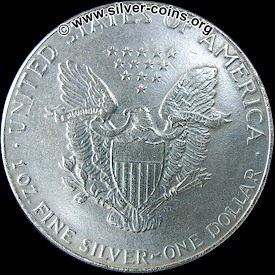 Kľúčové je práve cena drahého kovu na trhu. K najväčšiemu rozmachu falšovanie zlata a striebra došlo naposledy v sedemdesiatych rokoch minulého storočia, kedy sa cena zlata vyšplhala k $850 za trójsku uncu a cena striebra k $50 za uncu. Pri takto vysokých cenách začalo byť veľmi výhodné aj falšovania striebra.
Kľúčové je práve cena drahého kovu na trhu. K najväčšiemu rozmachu falšovanie zlata a striebra došlo naposledy v sedemdesiatych rokoch minulého storočia, kedy sa cena zlata vyšplhala k $850 za trójsku uncu a cena striebra k $50 za uncu. Pri takto vysokých cenách začalo byť veľmi výhodné aj falšovania striebra.
Tým sa dostávame k aktuálnej situácii a k výhľadom do budúcnosti. Možno očakávať ďalší rast ceny drahých kovov, prekonávajúci historické maximá. Ku strmému rastu došlo už v prípade zlata. Z toho jasne vyplýva, že sa falšovateľom ich činnosť bohato vyplatí, čiže falšovaných mincí a falošných zliatkov bude pribúdať.
Ako sa brániť proti falšovaniu?
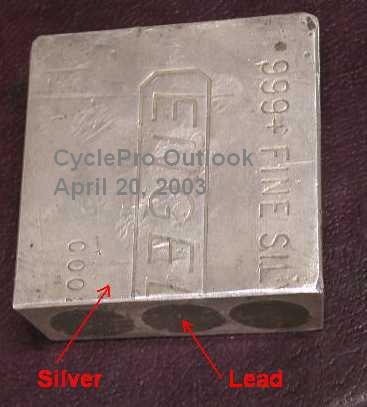 Základom je pre každého rozumného investora predovšetkým starostlivý výber dodávateľa a nemenej starostlivé rozhodovaní, aký zliatok alebo tehlu si kupujete. Napríklad v 70. rokoch existovali iba stouncové tehly od dvoch výrobcov. Boli to Johnson Matthey a Engelhard. Falšované boli prakticky iba tehly Engelhard (viď obrázok). Nevieme o tom že by sa kedy objavili vŕtané Johnson Matthey tehly. Dôvodom je na prvý pohľad zanedbateľná drobnosť: zvláštny tvar a zaoblené hrany tehál Johnson Matthey. To činí Johnson Matthey tehly z technického hľadiska veľmi ťažko falšovatelné a falšovatelia sa logicky zamerali na ľahšie cieľ, čo boli práve tehly Engelhard.
Základom je pre každého rozumného investora predovšetkým starostlivý výber dodávateľa a nemenej starostlivé rozhodovaní, aký zliatok alebo tehlu si kupujete. Napríklad v 70. rokoch existovali iba stouncové tehly od dvoch výrobcov. Boli to Johnson Matthey a Engelhard. Falšované boli prakticky iba tehly Engelhard (viď obrázok). Nevieme o tom že by sa kedy objavili vŕtané Johnson Matthey tehly. Dôvodom je na prvý pohľad zanedbateľná drobnosť: zvláštny tvar a zaoblené hrany tehál Johnson Matthey. To činí Johnson Matthey tehly z technického hľadiska veľmi ťažko falšovatelné a falšovatelia sa logicky zamerali na ľahšie cieľ, čo boli práve tehly Engelhard.
Zmyslom tohto článku nie je vzbudiť dojem, že na každom rohu na vás číhajú falošné mince a falšované zliatky. V každom odbore sa však nájdu nespravodlivci, ktorí nepohrdnú žiadnu možností na nekalé zbohatnutie.
falšujú sa bankovky, diamanty, umelecké diela - prakticky všetko čo má nejakú hodnotu. Čo napríklad falšovanie drahých kameňov? Vyrobí sa lacno, synteticky. Od pravého bude ťažko k rozoznanie (pozor na diamanty). Striebro sa synteticky sfalšovať nedá - falšuje sa tak že sa nahradí niečím iným. Má však výnimočné fyzikálne a chemické vlastnosti ktoré ho robia jedinečným.
Každý investor by sa ale mal mať vždy na pozore a nepodliehať zdanlivo výhodným ponukám.
Silverum!




 Zlato
Zlato Striebro
Striebro Euro
Euro Dollar
Dollar
